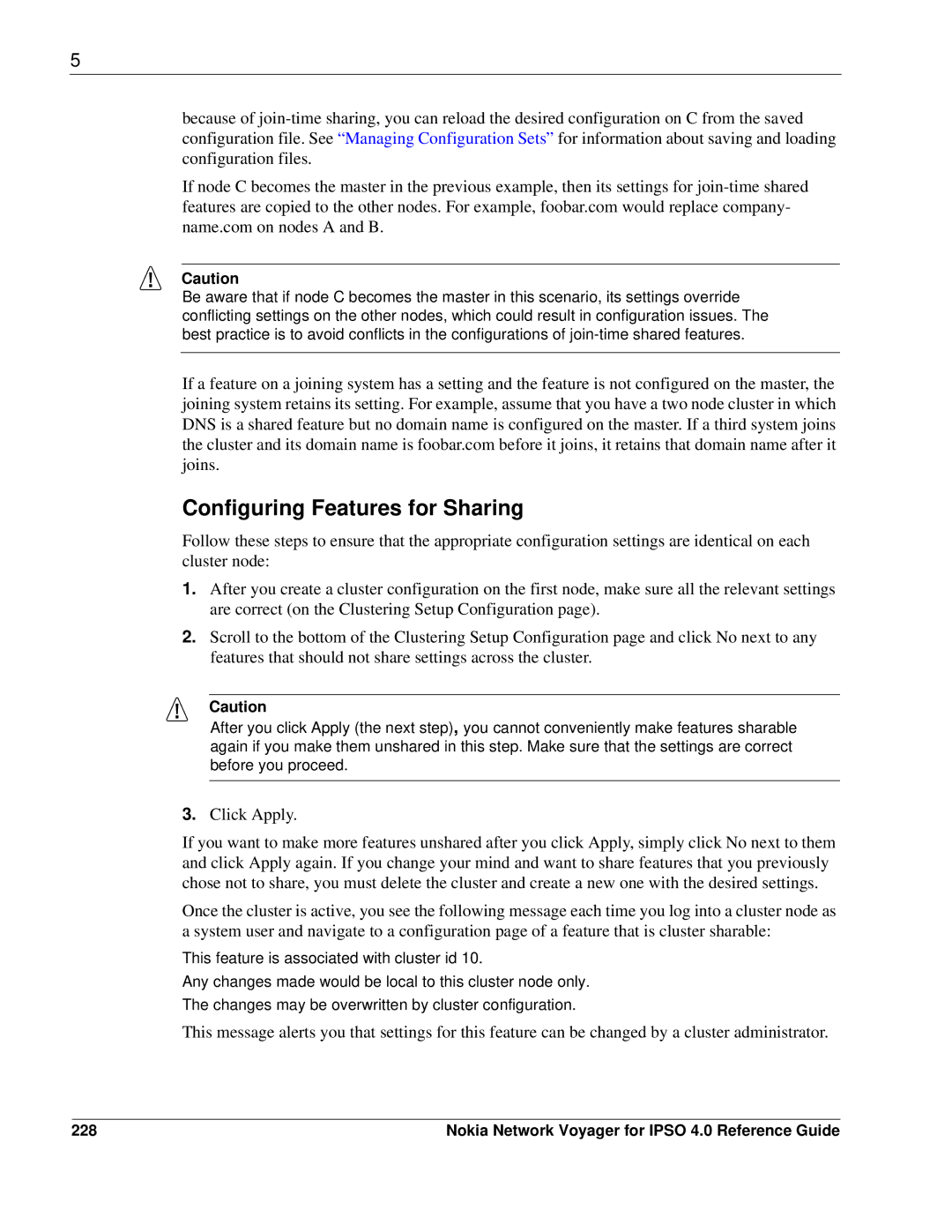
5
because of
If node C becomes the master in the previous example, then its settings for
Caution
Be aware that if node C becomes the master in this scenario, its settings override conflicting settings on the other nodes, which could result in configuration issues. The best practice is to avoid conflicts in the configurations of
If a feature on a joining system has a setting and the feature is not configured on the master, the joining system retains its setting. For example, assume that you have a two node cluster in which DNS is a shared feature but no domain name is configured on the master. If a third system joins the cluster and its domain name is foobar.com before it joins, it retains that domain name after it joins.
Configuring Features for Sharing
Follow these steps to ensure that the appropriate configuration settings are identical on each cluster node:
1.After you create a cluster configuration on the first node, make sure all the relevant settings are correct (on the Clustering Setup Configuration page).
2.Scroll to the bottom of the Clustering Setup Configuration page and click No next to any features that should not share settings across the cluster.
Caution
After you click Apply (the next step), you cannot conveniently make features sharable again if you make them unshared in this step. Make sure that the settings are correct before you proceed.
3.Click Apply.
If you want to make more features unshared after you click Apply, simply click No next to them and click Apply again. If you change your mind and want to share features that you previously chose not to share, you must delete the cluster and create a new one with the desired settings.
Once the cluster is active, you see the following message each time you log into a cluster node as a system user and navigate to a configuration page of a feature that is cluster sharable:
This feature is associated with cluster id 10.
Any changes made would be local to this cluster node only. The changes may be overwritten by cluster configuration.
This message alerts you that settings for this feature can be changed by a cluster administrator.
228 | Nokia Network Voyager for IPSO 4.0 Reference Guide |
